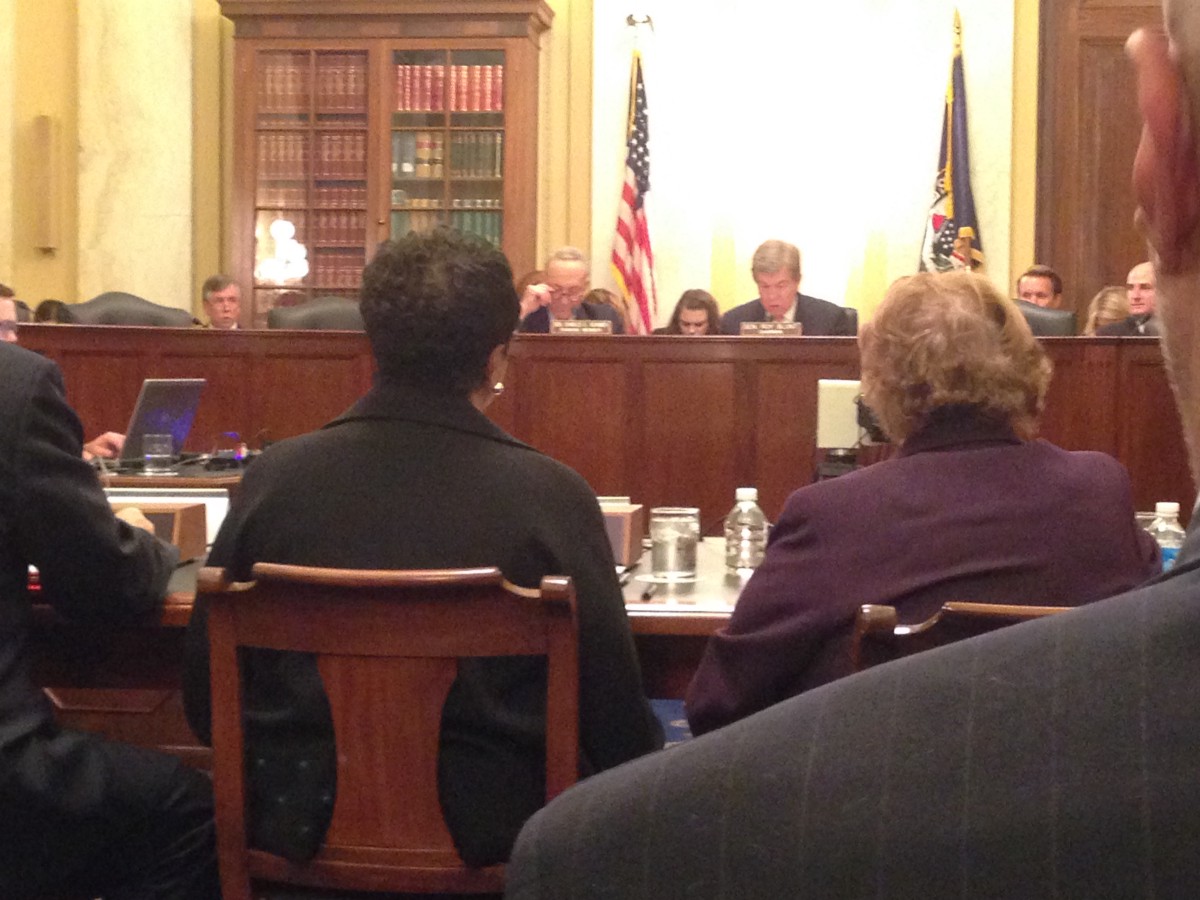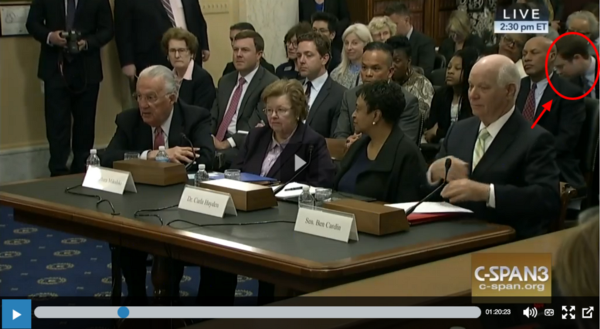
Yesterday I sat behind Dr. Carla Hayden as she testified on her pending nomination as Librarian of Congress before the Senate Rules committee. It was a surprisingly emotional moment, as I waited among her friends and family who were so very excited to see an amazing woman nominated for this high honor. Her mother was there, who was impressively poised and elegant among the crowd of well wishers. Many had traveled a long distance to be there today.
The last Librarian of Congress, Dr. Billington, was in the role for 28 years and it’s likely that Dr. Hayden will serve for much of the remainder of my professional career. With so much of what I do concerning public access to legislative information tied up in the work of the Library, Dr. Hayden could be a tremendous boon to the American people or the unfortunate hindrance that her predecessor became towards the end of his career. Her vitality gave me hope that it is the former, as did her tenure as president of the American Library Association. The Library of Congress is in desperate need of modernization and reform, which I have written about elsewhere, and she may be energetic and savvy enough to bring it.

Earlier this week I described the three questions I was hoping to see asked at the hearing. Only one of them was raised at the hearing — on public access to CRS reports — although I am hopeful that Dr. Hayden will now start meeting with stakeholder organizations so we can begin the process of getting to know the person I believe will be the next Librarian of Congress.
The issue of public access to CRS reports was raised three times. It was first raised by Dr. Hayden in her opening remarks, where she briefly alluded to CRS as the “special forces” of the Library of Congress. Sen. Shelley Moore Capito, who also chairs the Legislative Branch Appropriations Subcommittee, which is responsible for funding the legislative branch, raised the matter. And Sen. Amy Klobuchar asked a question that made additional points on access. Both senators mentioned the bill to make the reports publicly available, the Equal Access to Congressional Research Service Reports Act of 2016, introduced by Sens. McCain and Leahy in the Senate and Reps. Lance and Quigley in the House. Senate cosponsors include Sens. Jerry Moran, John Cornyn, Amy Klobuchar, and Tom Udall.
Sen. Capito gave Dr. Hayden an opportunity to weigh in on public access to CRS Reports. (Video is here.) Dr. Hayden’s response was measured, but indicated a willingness to address public access in a way the previous Librarian likely would not have considered.
Without committing to anything, Dr. Hayden noted that there are different views on the amount of accessibility of the reports and their confidentiality. She explained she would want to work with Congress on questions arising around the costs and staffing needed to make the reports available to the public. Dr. Hayden added she would not want to step over the line where CRS becomes a service to the public, as opposed to a service to Congress.
The Congressional Research Service and the Library have raised these concerns elsewhere, most notably in testimony before House Legislative Branch Appropriations Committee on March 2. Fortunately, the legislation introduced in the House and Senate would virtually eliminate costs to CRS regarding making the reports publicly available and would have a minimal staff impact. Nearly all the work would be done by the Government Publishing Office and would have minimal cost to anyone (including GPO). In addition, CRS would never be required to respond to inquiries from the public, and would remain a service focused on providing advice to Congress. These issues, and more, were addressed in a letter from more than 40 organizations calling for public access to CRS reports.
Sen. Klobuchar raised the issue of access to CRS reports, framing it in the context of the support of public access to information. (Video is here.) She explained how private services charge for access to the reports but the American people have a hard time getting the reports. Sen. Klobuchar added that if the American taxpayers are paying for the reports, it makes sense for them to be able to read them.
Dr. Hayden largely reiterated the response she gave to Sen. Capito, and that she looks forward to investigating more and addressing how and when to make the reports available to the public.
• • •
While public interest organizations, educators, journalists, and others have been advocating for publishing CRS reports online since the late 1990s, this past year has seen a burst of momentum. Former CRS employees and civil society coalitions have called for public access. Briefings and panel discussions have taken place on capitol hill. New legislation has been introduced that addresses all the issues raised by CRS. And members of Congress are talking about how to make the reports available, not whether they should do so.
I am hopeful that in the next year Congress will finally resolve the issue.
— Written by Daniel Schuman